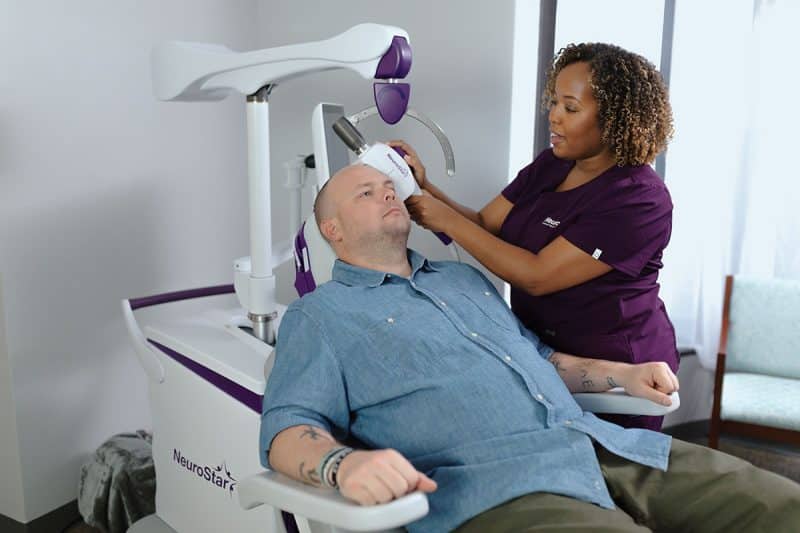ADHD is linked to dysregulation in brain networks responsible for attention and self-control, particularly:
TMS stimulates these areas, promoting neural activity and improving attention, impulse control, and cognitive performance.


Many individuals with ADHD experience symptom relief after consistent TMS sessions, including:
While TMS for ADHD is still being researched, early studies suggest it may be a valuable alternative for individuals who do not respond to medication or prefer a drug-free treatment option.
Id nisl lacus penatibus bibendum vitae lectus et a. Lorem nulla nulla nulla faucibus amet feugiat ultricies. Posuere arcu enim.
Id nisl lacus penatibus bibendum vitae lectus et a. Lorem nulla nulla nulla faucibus amet feugiat ultricies. Posuere arcu enim.
Id nisl lacus penatibus bibendum vitae lectus et a. Lorem nulla nulla nulla faucibus amet feugiat ultricies. Posuere arcu enim.
NeuroStar is a noninvasive, outpatient treatment that takes as little as 19 minutes per day. During each session, a cushioned coil is precisely placed against your head while magnetic pulses deliver the therapy to the correct location that regulates mood in your brain.


Lorem Ipsum is simply dummy text of the printing and typesetting industry. Lorem Ipsum has been the industry’s standard dummy text ever since the 1500s, when an unknown printer took a galley of type and scrambled it to make a type specimen book.
Lorem Ipsum is simply dummy text of the printing and typesetting industry. Lorem Ipsum has been the industry’s standard dummy text ever since the 1500s, when an unknown printer took a galley of type and scrambled it to make a type specimen book.
Lorem Ipsum is simply dummy text of the printing and typesetting industry. Lorem Ipsum has been the industry’s standard dummy text ever since the 1500s, when an unknown printer took a galley of type and scrambled it to make a type specimen book.
Lorem Ipsum is simply dummy text of the printing and typesetting industry. Lorem Ipsum has been the industry’s standard dummy text ever since the 1500s, when an unknown printer took a galley of type and scrambled it to make a type specimen book.
Lorem Ipsum is simply dummy text of the printing and typesetting industry. Lorem Ipsum has been the industry’s standard dummy text ever since the 1500s, when an unknown printer took a galley of type and scrambled it to make a type specimen book.
The initial comprehensive evaluation is an extensive meeting that usually lasts for an hour.
During this meeting, your provider will go over your detailed history and conduct an assessment to get a clear picture of your current mental health and answer any questions you may have.
The initial comprehensive evaluation is an extensive meeting that usually lasts for an hour.
During this meeting, your provider will go over your detailed history and conduct an assessment to get a clear picture of your current mental health and answer any questions you may have.
The initial comprehensive evaluation is an extensive meeting that usually lasts for an hour.
During this meeting, your provider will go over your detailed history and conduct an assessment to get a clear picture of your current mental health and answer any questions you may have.

930 N Mullan Rd Ste 1, Spokane Valley, WA 99206, United states
509-694-3135
509-694-3135